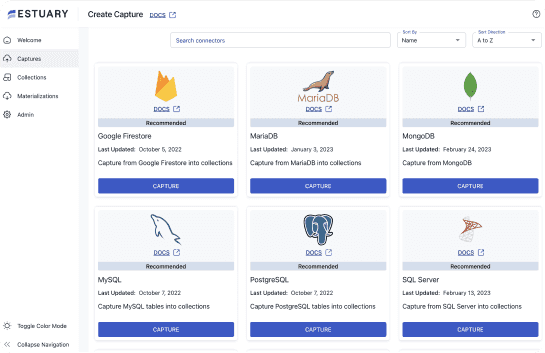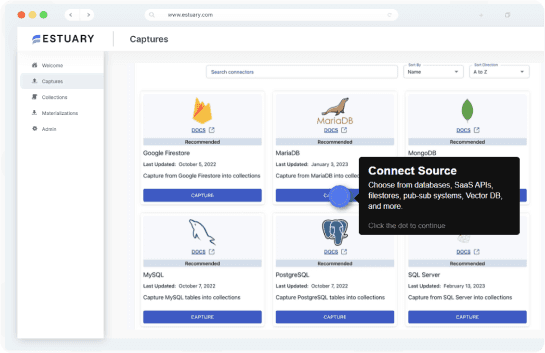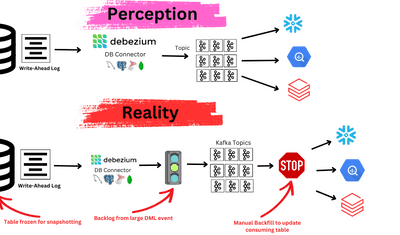
With the rapid increase in communication channels and connectivity, organizations are encountering an increase in the volume and diversity of customer interaction data. Aircall, a prominent cloud-based platform, handles such valuable and constantly expanding data.
However, Aircall lacks a centralized location to consolidate and process this data. Fortunately, it can easily be dealt with by loading your data from Aircall to BigQuery. This form of integration enables you to combine Aircall’s communication data with robust, scalable data warehouse platforms like BigQuery.
Let’s quickly look at how these platforms work before we focus on the different methods to complete this integration.
Aircall Overview
Aircall is a cloud-based telecommunications platform that streamlines communication. It eliminates the need for traditional telephone networks by leveraging Voice over Internet Protocol (VoIP), making it a cost-effective and flexible solution.
Aircall allows you to establish a professional presence in multiple geographic locations without physically establishing any offices. You can achieve this by utilizing its customizable virtual phone number system. These virtual numbers facilitate effective call routing and enhance caller experience. The use of Aircall provides you with advanced solutions for optimizing communication workflows. By leveraging its robust features, you can maximize the operational efficiency and scalability.
Some of Aircall's key features include:
- Advanced Integration: Aircall seamlessly integrates with popular CRM platforms like Zendesk, Salesforce, and HubSpot. It also integrates with popular business tools like Microsoft Teams, Zapier, and Google Workspace. This enables automatic call logging and contact synchronization to boost productivity.
- Call Recording: Aircall’s call recording feature enables you to record every inbound and outbound call without manual intervention. This ensures regulatory compliance and plays a pivotal role in reviewing and assessing individual performances.
- Mobile Application: Aircall offers a mobile application compatible with both Android and iOS devices; you can receive calls, access voicemails, and maintain connectivity even if you are working remotely.
BigQuery Overview
Google BigQuery is a cloud-based, serverless data warehouse on the Google Cloud Platform (GCP). It is a robust solution for storing, querying, and analyzing petabyte-scale datasets with unmatching scalability and speed. BigQuery also offers built-in features such as machine learning, data lifecycle management, data catalog integration, business intelligence, and geospatial analysis.
When you run a query, BigQuey uses a columnar storage format, which reduces the amount of data processed for each query. Additionally, it offers high-speed analysis of massive datasets by leveraging its distributed query processing engine. This engine ensures efficient parallel processing across multiple servers by optimizing resource utilization.
Let's look at some of the top features of BigQuery:
- Convenient Data Transfer: BigQuery Data Transfer Services enables you to ease the process of loading data from multiple sources into BigQuery. It offers built-in connectors for various platforms such as Google Analytics, YouTube, and more to streamline your entire data integration process.
- Data Lifecycle Management: BigQuery offers features such as creating data retention policies and automatic data expiration to manage the data lifecycle. This enables you to optimize your storage costs and manage all your data requirements with optimal efficiency.
- Pay-as-you-go Pricing: BigQuery offers a flexible pricing model where you only have to pay for the storage and resources you use. This provides economical solutions by enabling you to scale up or down according to your budget and requirements.
Why Load Data From Aircall to BigQuery?
- Integration with Data Sources: BigQuery enables seamless integration with various third-party tools. Aircall to BigQuery integration facilitates combining Aircall data with multiple other datasets for cross-functional and optimized analysis.
- Custom Visualization: You can easily create custom reports and visualizations by loading your data from Aircall to BigQuery. Its integration with multiple visualization tools like Google Data Studio and Tableau enables you to create interactive reports and dashboards to gain valuable insights.
Best Ways to Load Data From Aircall to BigQuery
There are two methods that can help you load your data from Aircall to BigQuery:
- Method 1: Using Estuary Flow to Load Data from Aircall to BigQuery
- Method 2: Using CSV Export/Import to Load Data from Aircall to BigQuery
Method 1: Using Estuary Flow to Load Data From Aircall to BigQuery
Estuary Flow is a user-friendly, real-time ETL (extract, transform, load) platform that revolutionizes your data-loading process in real time. All it takes is a few minutes and fewer clicks to configure your data integration pipeline and have it running.
No-code data integration tools like Estuary provide excellent scalability, advanced security features, and various batch and streaming connectors for your data migration needs. What’s more, it provides a fully-managed and intuitive platform for you to connect various data sources and destinations — including Aircall and BigQuery!
So, let’s dive into the step-by-step process of using Estuary Flow to start loading data from Aircall to BigQuery.
Prerequisites
What you’ll need:
- An active Estuary account (you can get one here for free!)
- Aircall
- BigQuery
Step 1: Configuring Aircall as the Source
- Log in to your Estuary Flow account to start configuring Aircall as the source.
- Navigate to the Sources tab on the dashboard.
- On the Sources page, click on the + NEW CAPTURE button.
- Use the Search connectors box to look for the Aircall connector. Click on the connector’s Capture button when you see it in the search results.
- You will be redirected to the Aircall connector page. Fill in all the mandatory details such as Name, API ID, API Token, and Date-From Filter.
- After you’ve filled in the required details, click NEXT > SAVE AND PUBLISH. The connector will capture data from Aircall into Flow Collections.
Step 2: Configuring BigQuery as the Destination
- Navigate to the Destinations tab on the dashboard to start configuring BigQuery as the destination.
- On the Destinations page, click on the + NEW MATERIALIZATION button.
- Type BigQuery in the Search connectors box. Click on its Materialization button when it appears in the search results.
- You will be redirected to the BigQuery connector page. Enter all the specified details like Account ID, Service Account JSON, Region, Dataset, and Bucket.
- Use the Source Collections section to manually link a capture with your materialization.
- Then, click NEXT > SAVE AND PUBLISH. This will materialize the data from your Flow collections into BigQuery tables.
Advantages of Using Estuary Flow to Transfer Your Data
- Low Latency: Flow possesses real-time data loading capabilities with millisecond latency. This lets you transfer your Aircall data to BigQuery within a few milliseconds, thereby reducing the latency and increasing efficiency.
- Ready-to-use Connectors: It streamlines the entire data loading process by offering 300+ built-in connectors for creating custom pipelines. The no-code configuration simplifies and automates the entire process, making it less prone to human errors.
- Scalability: Estuary Flow can automatically scale up or down, allowing you to manage and analyze large volumes of data according to your requirements.
Method 2: Using the CSV Export/Import Method to Load Data From Aircall to BigQuery
This method comprehensively covers the CSV export/import technique to manually load your data from Aircall to BigQuery. Let’s jump in.
Step 1: Exporting the Data from Aircall in CSV Files
- Log in to your Aircall account to get started.
- Navigate the Stats section to find the Overview Dashboard in the left navigation pane. Click on the Download button in the top-right corner.
- Use the dashboard filters and adjust the data shown to the required granularity.
- You will get two options of data formats to export your data:
- PDF
- CSV
- Select the CSV format to start downloading your data. Once the download completes, you will receive a zip file containing separate CSV files for all the titles shown in the Overview dashboard.
Step 2: Importing Data into BigQuery Using Web API
You can use Web API to import the downloaded CSV file into BigQuery; this will require extensive coding experience.
- Here’s a Python code sample to import CSV into BigQuery.
pythonfrom google.cloud import bigquery
client = bigquery.Client()
table_ref = client.dataset('dataset').table('table')
job_config = bigquery.LoadJobConfig()
job_config.source_format = bigquery.SourceFormat.CSV
job_config.skip_leading_rows = 1
job_config.schema = [
bigquery.SchemaField('col1', 'STRING'),
bigquery.SchemaField('col2', 'INTEGER'),
]
with open('/path/to/file.csv', 'rb') as source_file:
job = client.load_table_from_file(source_file, table_ref, job_config=job_config)
job.result() # Wait for the job to complete
table = client.get_table(table_ref)- The above code makes use of the load_table_from_file method to load the CSV file into BigQuery.
- You can also use skip_leading_rows and field_delimiter in the LoadJobConfig object to customize your loading process.
Get Integrated
Loading your data from Aircall to BigQuery allows you to analyze and manage your data in a centralized repository. You can load Aircall's vast and constantly expanding communication dataset into the highly scalable Google BigQuery warehouse for better insights into your data.
In this post, we covered two approaches to loading data from Aircall to BigQuery. One is the manual CSV export/import method, which exports the Aircall data in CSV files and then imports these CSV files into BigQuery. This method is time-consuming, requires more skills and effort, and encounters more human errors.
Another option is to use no-code integration tools like Estuary Flow, which automates the entire process of data loading. Flow offers advanced features to optimize your workflows, including CDC support, built-in connectors, and a user-friendly interface to simplify the process.
FAQs
- Does Aircall automatically record all its calls?
No. Aircall can record calls based on your requirements. For both incoming and outgoing calls, you can choose whether to start the recording automatically or allow your agents to pause or start recording manually directly in the mobile app.
- What are the potential use cases for analyzing Aircall data in BigQuery?
Analyzing Aircall data in BigQuery allows you to make data-driven decisions and gain valuable insights. Some of the common use cases of this data integration are measuring the performance of the call center, tracking customer interactions and feedback, optimizing marketing campaigns, and detecting any fraud.
- What type of reports can I generate using the Aircall data stored in BigQuery?
Using the Aircall data stored in BigQuery, you can generate various types of reports for monitoring the performance and services of the call centers or individual agents. These reports can be call duration reports, call volume reports, customer satisfaction reports, and more.
Automate your data-loading process by leveraging Estuary Flow's powerful yet user-friendly no-code platform. Register for an account now to get started!

About the author
With over 15 years in data engineering, a seasoned expert in driving growth for early-stage data companies, focusing on strategies that attract customers and users. Extensive writing provides insights to help companies scale efficiently and effectively in an evolving data landscape.




















